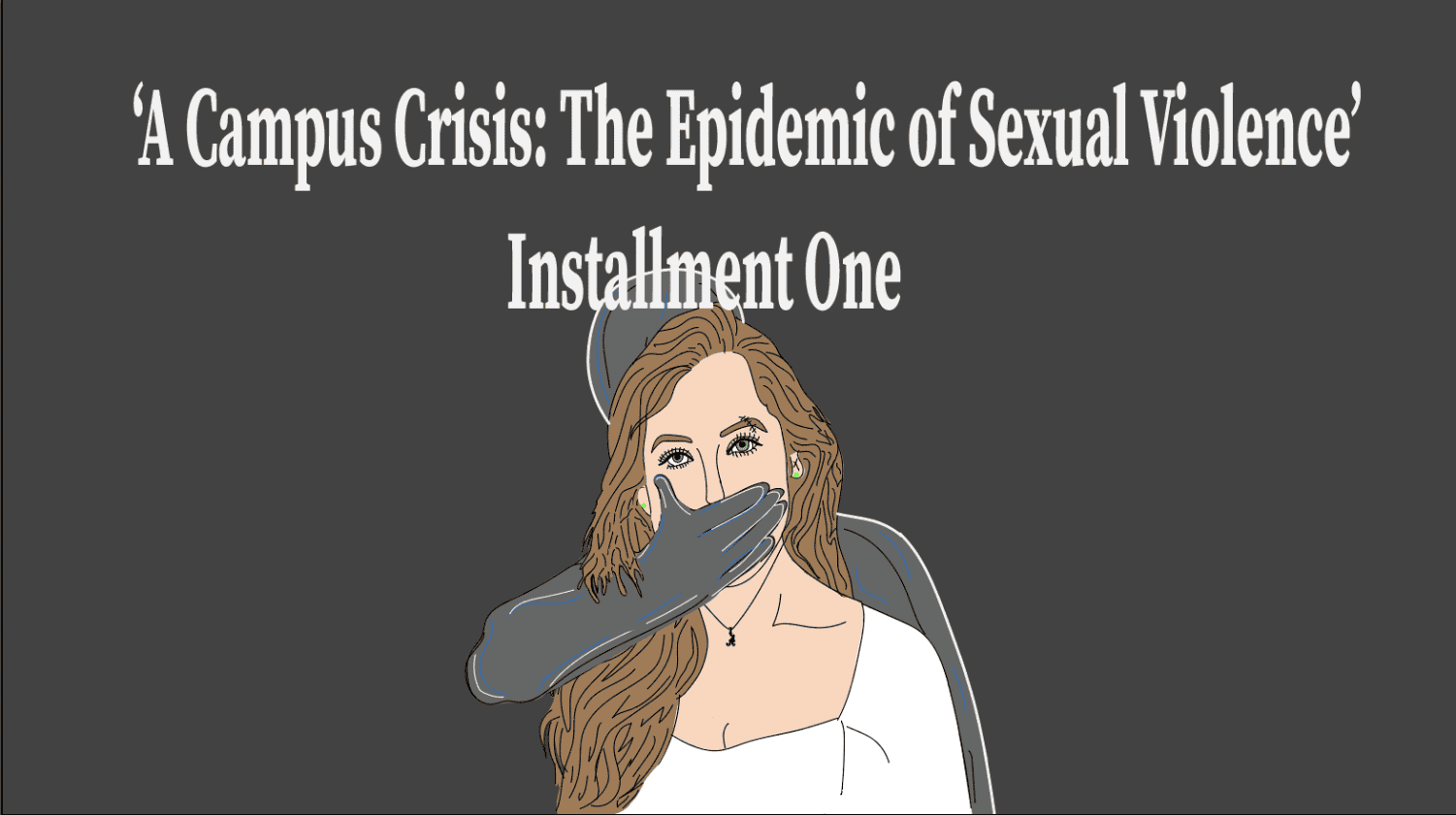Opinion | ‘A Campus Crisis’ Installment One
This is the first installment in a five-part series about rape and sexual assault on college campuses. Over the course of this series, readers will hear from organizations dedicated to combating sexual violence on The University of Alabama’s campus. This first installment highlights the importance of these conversations in the first place: to change an established culture.
June 23, 2021
We need a new narrative on rape culture.
To learn more about the series and the story that inspired it, click here.
As cultures around the world reckon with their own patterns of oppression, we, as a global society, are constantly creating a new and evolving story. What might a new story even look like?
A cultural story is composed of independent narratives. These narratives may be personal or societal, confounding each other to craft a society with many distinct rules and attitudes. In order to enact any cultural change, we must first examine these narratives.
The prevalence of rape and sexual assault is at last receiving its own reckoning as survivors bravely come forward to destigmatize the experiences that they have been belittled and silenced for. As prominent and trusted celebrities, politicians and public figures are revealed to be perpetrators, the #MeToo movement has provided survivors the opportunity to heal from their own experiences and advocate for a global attitude shift.
As witnesses to the movement, we must decide whether to act against rape culture or to uphold it. There is no neutrality in matters of sexual violence.
The #MeToo movement aims to combat rape culture in all its forms as it permeates and corrodes every aspect of society, from education and media to the way we think and speak. By exposing the truth of rape culture, the movement is crafting a new narrative, one that empowers rather than silencing.
Throughout the last few years, this culture has faced many conflicts with its own narratives about sexual assault, rape and violence. Since rape culture is one of the most long-standing institutions in human society, these new narratives must tackle an enduring attitude of denial and dismissal of survivors’ experiences.
Every moment a survivor speaks out against their assaulter presents an opportunity for individuals to confront their own perspectives on violence. It is the responsibility of all to be willing to deconstruct the narratives instilled in them. In doing so, we may collectively reach an end to the threat of violence that has plagued humanity for centuries.
One such moment for The University of Alabama community is the case of Megan Rondini, a former UA student who died by suicide in 2016 after alleging rape against T.J. Bunn Jr., a prominent member of the Tuscaloosa community.
In May 2021, an Alabama Supreme Court ruling at last allowed Megan’s family to pursue a wrongful death lawsuit against Bunn. This instance of justice is years too late.
Megan’s story is all too familiar for those who have had their own experiences with rape culture. Survivors are often met with the same narratives spouted by society: speak out, speak up, seek justice. This sentiment is simply not a reality for most survivors. Among the very few instances of rape and sexual assault that are reported, only 6% of perpetrators spend even a single day in jail.
During her interrogation with the police, Megan was asked why she didn’t resist Bunn’s attempts. In contrast, police treated Bunn with sympathy, with one officer stating he would want to be treated the same way.
Megan’s experiences reflect a continued attitude of victim blaming in cases of sexual assault and rape. What did they do to invite sexual advances? Were they dressed in a revealing way? Did they flirt? Did they say no firmly enough? Surely they couldn’t have meant it when they said it, or they wouldn’t have been assaulted.
These narratives are harmful and dangerous.
The attitude of victim-blaming upholds the reputation, future and safety of the perpetrator while dehumanizing the survivor. Society appears desperate to uphold rape culture, searching for any alternative explanation that will absolve the perpetrator of their actions so that they may continue to pursue careers, families and life itself without the burden of accountability.
This attitude has been exposed in recent cultural instances of survivors coming forward. In the process of confirming Brett Kavanaugh to the U.S. Supreme Court, the nation began to analyze and critique the experiences of Christine Blasey Ford.
Ford’s experiences weren’t allowed to be simply her own: they were a representation of the credibility of all survivors of sexual violence. They were a hope and a threat, an opportunity for change or for the preservation of existing norms.
It is not the responsibility of survivors to unearth their own trauma to challenge institutions of sexual violence. It is the public’s responsibility to pursue knowledge and to seek to understand so that such instances may one day never occur in the first place.
As survivors undergo a character assassination, many have turned to the sentiment summarized by author Simcha Fisher.
“When a woman says, ‘This man raped me a long time ago,’ we say, ‘But that was in the past.’ When a girl says, ‘This boy raped me last night,’ we say, ‘But we can’t wreck his future!’ And there she stands, suspended between his past and his future, with no value of her own,” Fisher writes on her blog.
The cultural attention given to survivors is demeaning. They are followed by a shadow of their past for the rest of their lives while perpetrators go free. They find themselves reduced to what others did to them.
In her memoir, Chanel Miller recounts her experience as a survivor of sexual assault. After her attacker, Brock Turner, was imprisoned for a mere three months, her identity appeared to be a reflection of his actions. While the nation scrambled to protect his promising swimming career, her future was forgotten.
The time has passed for anyone to neglect paying attention. There are instances of sexual violence every single day, and complacency only allows this to continue. In America alone, someone is sexually assaulted every 68 seconds.
One might ask what can be done about such an alarming statistic. We can learn. We can listen. We can challenge the culture that has dictated the conditions of our existence.
With the advent of social media, awareness of sexual violence is becoming increasingly accessible. Survivors have taken to platforms like TikTok to recount their experiences.
The information is out there. Now it is up to the rest of us to find it. Doing so is a necessary first step toward creating a new story surrounding sexual violence, one that condemns rather than allows.
While cultural awakenings may serve as opportunities to deconstruct societal norms, survivors are not martyrs in a righteous war. Christine Blasey Ford, Chanel Miller, Megan Rondini: these names don’t exist as mere headlines on a news story. They are people with rich individual lives who were violated by others.
In seeking awareness about sexual violence, we must remember to pursue a survivor’s personal narrative, one far more complex than what has been done to them. In doing so, we stop the dehumanization of survivors and instead honor them. As we tell new stories, we set new standards for our society so that all may reclaim their own humanity.

